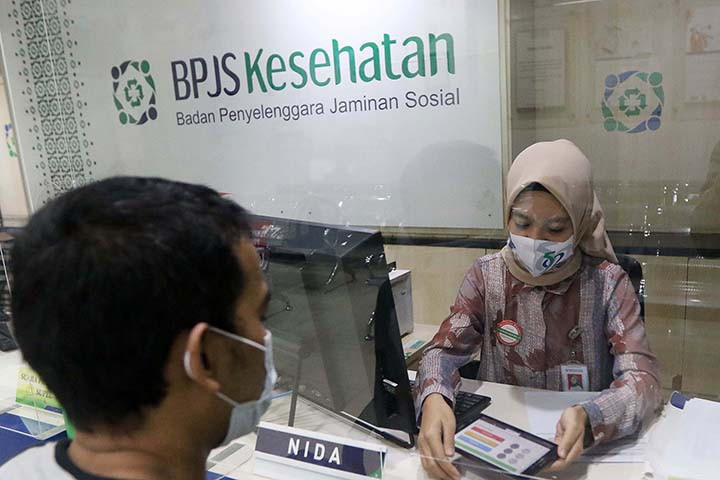Popular Reads
Top Results
Can't find what you're looking for?
View all search resultsPopular Reads
Top Results
Can't find what you're looking for?
View all search resultsBPJS Kesehatan predicts positive net assets for DJS Kesehatan in 2024
Change text size
Gift Premium Articles
to Anyone
T
he Social Security Administrative Body for Health (BPJS Kesehatan) forecasts that the net assets of the Social Security Health Fund (DJS Kesehatan) will remain positive through the end of 2024, despite projections in the budget work plan (RKA) that health service costs may surpass premium revenue. BPJS Kesehatan head of public relations Rizzky Anugerah shared this outlook on Friday.
According to Rizzky, BPJS Kesehatan expects the net assets of DJS Kesehatan to exceed Rp 32 trillion (US$2 billion) by the end of 2024, which will be allocated to funding healthcare services for policyholders.
"This figure reflects increasing access to healthcare services and growing public trust in BPJS Kesehatan's programs," he said.
The rise in healthcare service costs is driven by the significant increase in the utilization of the National Health Insurance (JKN) program. In 2023, BPJS Kesehatan provided an average of 1.7 million daily services, amounting to 606.7 million cases annually, far higher than the 92.3 million cases recorded in 2014.
Catastrophic illnesses accounted for 25 percent of healthcare costs at the advanced referral level in 2023, with BPJS Kesehatan spending Rp 34.7 trillion to cover 29.7 million cases. Rizzky described this as a double-edged sword, saying that while more people benefitted from healthcare access, the financial burden continued to grow.
"We extend our gratitude to participants for their trust in JKN services. However, to ensure the program's sustainability, strategic measures and sufficient funding are necessary," Rizzky said.
He expressed hope that the government’s evaluation, which will form the basis for adjusting benefits, premiums and rates in line with Presidential Regulation No. 59/2024, would be finalized appropriately. The regulation mandates that adjustments be made no later than July 1, 2025, based on discussions with the Health Ministry, Finance Ministry, National Social Security Council (DJSN) and BPJS Kesehatan.
Rizzky also highlighted Government Regulation No. 87/2013, which provides measures to address negative fund balances, including premium adjustments, additional funding and benefit revisions.
Under Presidential Regulation No. 64/2020, JKN premiums must be reviewed every two years, taking into account inflation, healthcare costs and participants’ ability to pay. However, premiums have not been adjusted since 2020, despite a significant cost increase in 2023 following Health Ministerial Regulation No. 3/2022, which revised service tariffs at healthcare facilities.
"Over the past decade, the JKN program has delivered significant benefits to the public. Going forward, it is vital to enhance service quality and ensure the program’s financial sustainability amid challenges such as funding, program effectiveness and healthcare service improvements," Rizzky noted.










